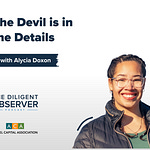Today's episode explores three ideas that caught my attention:
The paradox of regulatory rigor - Many investors simply screen out opportunities in highly regulated spaces like medical, deep tech, and defense. “I only look at post-revenue software deals",” for example. But Pete's insight that difficult regulatory requirements actually create competitive advantages suggests this approach completely misses a huge opportunity to back highly defensible businesses. Yes, heavy regulation increases risk, but it also increases possible return.
Faculty are rarely suited to be entrepreneurs - Pete’s observation that tenured faculty rarely make ideal startup CEOs highlights a critical gap in university innovation ecosystem: business leadership. If I was an energetic entrepreneur looking for a new project, I’d hang out around a university ecosystem and dig for a project worth scaling.
The “evolutionary” versus “revolutionary” investment - Pete’s distinction between the “evolutionary” and “revolutionary” opportunity stood out to me. He highlights that angel investors can still profit nicely from evolutionary investments, unlike most VCs who depend on revolutionary, portfolio-returning deals.
I explore these ideas and more with Pete ONeill, Chief Innovation Officer for Texas A&M Innovation.
Pete ONeill is a rare innovation leader who has successfully navigated the complexities of aerospace, healthcare, and academic technology commercialization. As Chief Innovation Officer for Texas A&M Innovation, he oversees intellectual property management across 11 universities and 8 state agencies, building on his experience as Executive Director of Cleveland Clinic Innovations and leadership of multiple successful healthcare startups. His unique journey from investment casting for jet engines to launching medical device companies gives him a distinctive perspective on transforming technical innovations into real-world opportunities.
During our conversation, Pete shares:
A framework for spotting regulatory readiness that evaluates how knowledgeable founders are and how they view regulatory relationships.
Why market understanding must precede technical validation - demonstrated through his experience evaluating healthcare innovations at Cleveland Clinic.
A practical approach to university technology transfer that emphasizes matching external expertise with internal intellectual property.
What We Cover:
00:00 Introduction to High-Stakes Innovation
01:51 Investment Casting Insights
03:04 Transitioning from Aerospace to Healthcare
04:33 Challenges in Highly Regulated Industries
07:37 Regulatory Rigor as a Competitive Advantage
08:31 Building Credibility with the FDA
10:25 Evaluating Market Demand
15:48 The Importance of a Strong Team
19:19 Pete's Entrepreneurial Journey
24:14 Texas A&M's Innovation Ecosystem
Listen now on Spotify, Apple Podcasts, and YouTube.
Connect with Pete
Connect with Andrew
Newsletter: https://thediligentobserver.substack.com
Website: https://pitchfact.com/
Stuff We Reference
Cleveland Clinic: https://my.clevelandclinic.org/
Texas A&M: https://www.tamu.edu/index.html
Plug and Play: https://www.plugandplaytechcenter.com/
NIH (National Institutes of Health): https://www.nih.gov/
Elizabeth Holmes and the Theranos Case: https://www.integrityline.com/expertise/blog/elizabeth-holmes-theranos/
FDA (Food and Drug Administration): https://www.fda.gov/
Know someone who would enjoy this episode? Share it with them!
P.S. Your feedback is important to me. Also, it tells the algorithms to pay more attention, which helps me out a lot. If you enjoyed this episode, hit the “like” button or leave a comment with your thoughts.
All opinions expressed are personal and may not reflect the views of the guest’s organization or of The Diligent Observer. Not investment advice.















Share this post